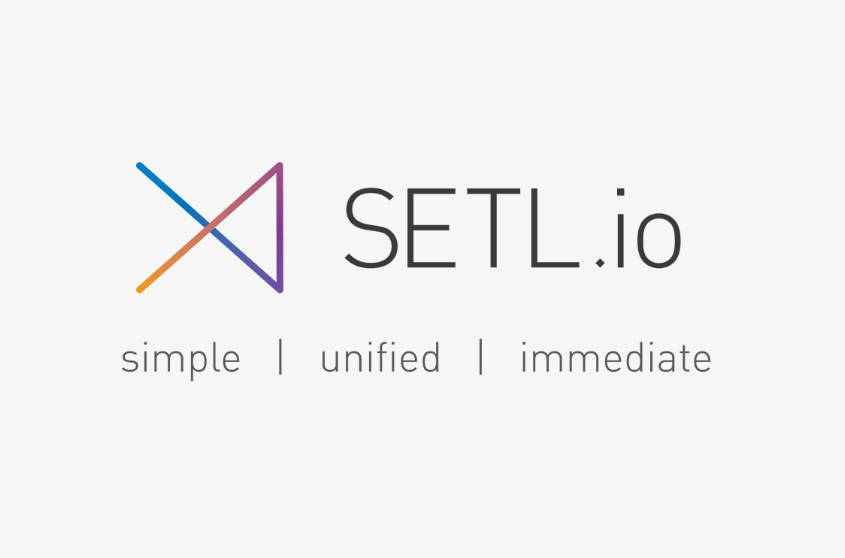Online Operations to Software Development: Automation In The Heart Of Passion
Catherine Cooper, SETL Java Developer
4/29/2020
Imagine a world where production lines are completely unmanned, controlled by simple commands that can be remotely given, delivery trucks drive themselves to depots, warehouses are fulfilled by robots on wheels, online ordered items delivered by flying drones to your doorstep, and combine harvesters and other fully automated machines grow, harvest and process food for us. It’s a place where germ spreading banknotes and coins are only seen in museums, household waste is collected and recycled without human contact, and even the care for the young, the elderly, and the unwell is done with the assistance from robots. Imagine in that world, if an outbreak similar to COVID-19 occurs, social distancing can be easily maximised whilst medical applications work away racing to develop vaccines for us. This is not a dream. It is a necessity to our survival.
Automation Invasion
Back in the present, resistance is futile. Automation has invaded our world, wave after wave for some time now, whether you like it or not. I have always been a firm believer that for the best interest of business, whatever can be automated without jeopardising quality should be automated, since long before I became a Developer. Some people may view this as an extreme statement coming from the “Fast-east” where people are so obsessed with efficiency and robotics, that humanity became less important. What they do not get is that underneath this very inhuman appearing principle lies a very human motive.
We all want to work less! We would like to spend more time in our lives enjoying fresh air and doing hobbies, whether it is walking by the sea, cooking healthy meals, playing board games, or having fun with family and friends. Perhaps we would also like more opportunities to appreciate art and literature, or to explore the unknown in science. We want to live more like human beings rather than spending our precious years working like robots, repeating the same actions and growing worn by the day. It is the robots’ job to do that, so we do not have to. It has been my vision that in the not far too distant future, every role in the job market will involve some degree of instructing some kind of computing programs to help us achieve our goals and that degree in every role will keep upleveling with time; services delivered upon layers of programs and software development evolves into the art of orchestrating programs, making sure that they all work together in a compatible, seamless and efficient manner. As a collective effort, this should keep improving the overall efficiency of our civilisation.
Rome Was Not Built In A Day

However, no automation can be done overnight, even for each small step. In the meantime, businesses still have to meet the clients’ expectations as usual whilst managing all the changes happening behind the scenes. The whole transformation can only be done in stages. Back in 2012, I was hired as an Ad Operations Manager by one of the few British online advertising technology companies that had the ambition to go against the tide and try to get their “magic” into the American market. It was my experience working with RTB (Real-time Bidding) on Ad Exchanges that they sought for. When I started, they had already built good analytical tools to help me make decisions on simpler campaigns. The following stage included automating the decision making for the simpler campaigns, so I could concentrate on optimising the more complex ones. As I was battling for the best performance from challenging campaigns and balancing the overall revenue and margin for the company at the same time, I was also working with the developers and data scientists to help them understand our goals, the behaviour of RTB, and how we operate and optimise with our human brains. The aim was for them to add more and more automated features into our application, especially the automated bid optimisation feature, so it could achieve the same goals, much faster, better and on a very large scale.
The way machines work is of course very different from how our brains work, as it is more driven by statistics than human intuitions. We discovered that certain types of campaigns, such as fashion, worked really well with automated optimisation, whereas other types of campaigns were not showing significant improvement, and therefore, still required a lot of human intervention. There was a brief time when the company had to hire more operations staff to optimise campaigns manually in order to fill in gaps when the technology was not yet ready for what was promised to the market. For me, it was the most exciting time in my online operation’s career to work so closely with the developers and data scientists and it inspired me to eventually become one. I did not stay long enough to see the fairy tale ending of the British startup before moving on to an American company where I witnessed similar progress from managed service with human operations to clients’ self-service enabled by automation. My role shifted to more project/product oriented responsibilities, including working with developers to improve the products’ effectiveness and user friendliness, whereas some of my team members shifted to client facing technical support. It seemed a win-win situation as it saved costs for both the tech company and their clients. However, the implementation was definitely not without ups-and-downs and hardwork.
Automated Risk Versus Reward
Changing the way people think is harder than conquering a mountain, because people feel more comfortable with what they are familiar with. They have doubts about what technologies can really deliver as an expensive investment. They have fear over what technologies could bring and all the impacts in the short term. They know that at least the old ways worked no matter how out of date. If there is a flaw in the design or building of the automation, it could have devastating consequences. Some airline disasters were exactly caused by that kind of flaw. The quality of the automation should always be the top priority for any innovator. To ensure quality, in most cases, it is an on-going endeavour throughout the implementation process as some of the issues only surface in real-world live scenarios. Thorough testing is absolutely critical, however, it is impossible to cover all the hidden issues. Therefore, businesses should take into account any unforeseeable modification or refactoring into their roadmap.
Automation And Humanity

During implementation, whether it is working with clients who are like children learning how to ride bicycles, trying to let go of the stabilisers or working with fellow employees who are learning how to do completely different roles from what they joined the company for, the most important thing is to listen to their concerns, understand their feelings and show empathy before giving them reassurance. Empathy is what distinguishes us from the most perfect artificial intelligence if it ever gets invented. For someone who grew up in a social environment where people tend not to show emotions, I had to train myself later in life to express empathy that had hidden within for most of my life in order to adapt to the western world. It turned out to be the best gift to humanity. Beyond that, the key to a successful transition includes providing full transparency, adequate post-handover support, always taking the clients’ feedback seriously, working with them in every detail and staying positive.
The development of human civilisation has never been linear, otherwise, we would have reached the edge of the galaxy by now from the point of clever Roman inventions. There have always been setbacks in history due to our imperfection. Similarly, businesses have to do whatever is necessary for their survival at critical times in a highly competitive environment. Sometimes, the market simply was not ready for certain advanced ideas that were ahead of their time. The few visionaries suffered as a result. However, despite their suffering, it was their vision and persistence that drove the world forward, sooner or later. The setbacks do not change the overall trajectory of where things are going or should be going. Only by embracing and taking advantage of what we foresee and by holding on to our belief in the long term benefit for all, we can be at the forefront of advancement, lead competitions, change the way people behave and shape our future through our actions. “We change the world through the way we choose to live in it.” – The Aeronaut.
Design With A Purpose
Going back to the very motive of automation, after technologists have delivered their contributions, it is up to the politicians and policy makers to transfer the improvement of the overall efficiency into something that everyone in the society could benefit from. If they fail to make such a crucial transfer, on the contrary, make most people work harder and longer or lose income then there is little incentive for people to welcome automation. People could only interpret such changes as another benefit for the very few and a threat to the majority on the ground who lose their jobs and sink into poverty. Should not the needs of the many outweigh the needs of the few? That is a whole separate topic for another day.
We all have to play our parts the best we can and have faith in the parts played by others. That is the only way a modern society could function. It makes us vulnerable as individuals and makes us stronger as a group. Here at SETL, we bring blockchain technology to mainstream financial services for the ultimate benefit of the users of financial services by creating payment and settlement systems which are more performant, more secure and massively less costly than the incumbent systems. For those who support what we do and have faith in what we are aiming to achieve, the reward will be inevitable just like automation deepening into every vein of our world, inevitable.



